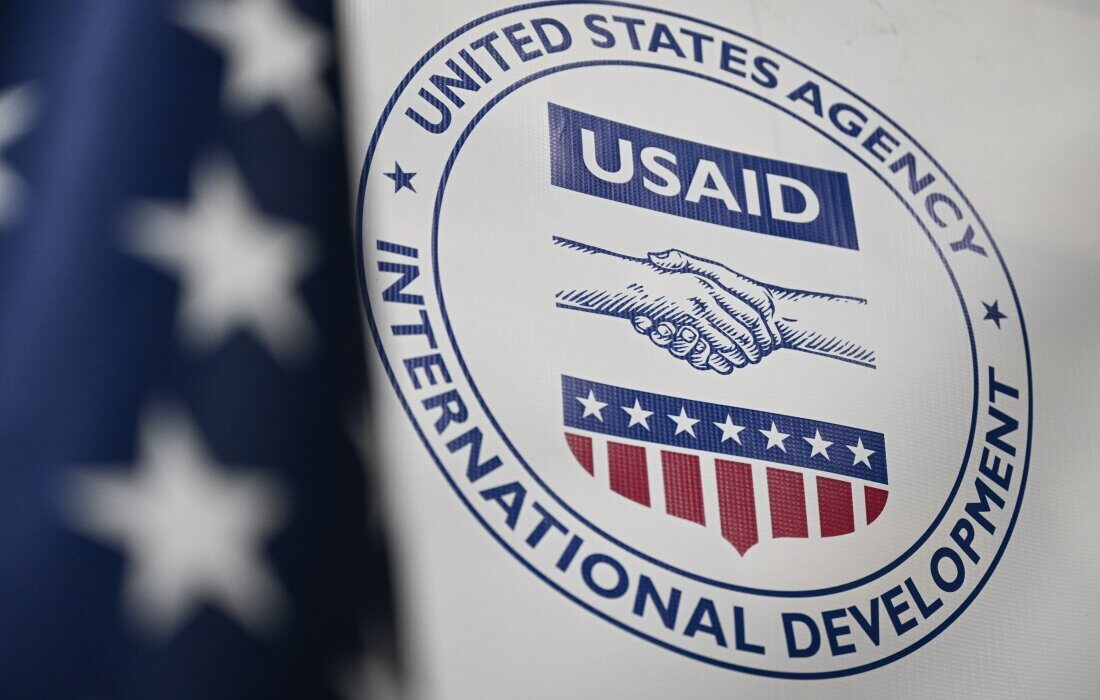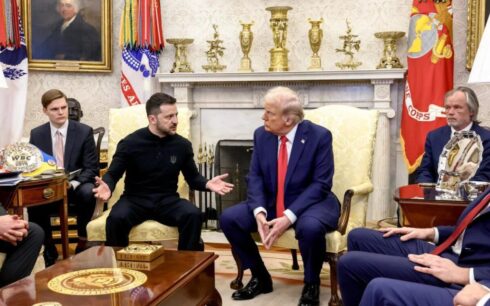WASHINGTON — The website for the U.S. Agency for International Development (USAID) appeared to be offline Saturday, as the Trump administration moves to strip the agency of its independence and bring it under the control of the State Department.
Attempts to access the website were met with an error message stating that the “server IP address could not be found.” The disruption comes amid broader efforts by the administration to overhaul foreign aid distribution, including an executive order issued last week to freeze funding while a review is conducted to ensure alignment with President Donald Trump’s “America First” foreign policy.
Quoting two sources familiar with the discussions, Reuters reported on Friday that the administration is working to dissolve USAID as a standalone agency and place its $42.8 billion budget under the State Department’s direct oversight. According to Reuters, plaques bearing the USAID seal were removed from agency offices on Friday, a sign that the transition is already underway.
The move has sparked concerns among diplomats and aid officials, who warn that merging USAID into the State Department would fundamentally alter its role as the world’s largest humanitarian aid provider. Current and former agency officials have described the effort as a “seismic shift” that could silence humanitarian voices in high-level policymaking.
The reorganization has also raised legal questions. While Reuters reported that the White House is exploring Trump’s executive authority to unilaterally dissolve USAID, it remains unclear whether he can bypass Congress to enact such a change.
Democratic lawmakers have voiced opposition to the move. Senator Chris Murphy of Connecticut, a member of the Senate Foreign Relations Committee, warned in a post on X on Friday evening to “watch USAID tonight.” Senate Majority Leader Chuck Schumer, citing rumors that the agency’s independence could be dissolved, called such a decision “illegal and against our national interests.”
Meanwhile, Secretary of State Marco Rubio, who would oversee USAID if it were absorbed into the State Department, has signaled a shift in U.S. diplomatic priorities. In an opinion column published in The Wall Street Journal, Rubio wrote that his first trip as America’s top diplomat would be to Latin America, visiting El Salvador, Guatemala, Costa Rica, Panama, and the Dominican Republic.
“These nations were neglected by past administrations that prioritized the global over the local and pursued policies that accelerated China’s economic development, often at our neighbors’ expense,” Rubio wrote.
The freeze on foreign aid is already disrupting critical humanitarian programs. Medical facilities in Thai refugee camps, landmine clearance operations in war zones, and the distribution of life-saving treatments for diseases such as HIV are among the programs now facing funding cuts.
In fiscal year 2023, the United States disbursed $72 billion in assistance worldwide, covering everything from women’s health in conflict zones to clean water access, energy security, and anti-corruption initiatives. According to the United Nations, the U.S. accounted for 42 percent of all humanitarian aid tracked in 2024.
Following Trump’s executive order last week, the State Department issued a global stop-work directive, effectively freezing all foreign aid except for emergency food assistance—a decision experts warn could have deadly consequences.
Earlier this week, Rubio granted an additional waiver for “life-saving humanitarian assistance” as Washington conducts a 90-day review of all foreign aid programs.
The administration has yet to nominate a new USAID administrator, further fueling speculation that the agency may be permanently dissolved as an independent entity.





